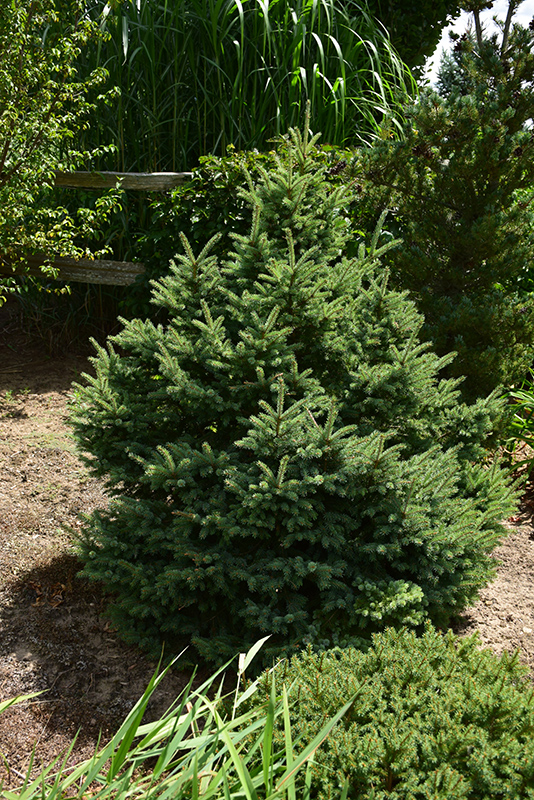PLANTFINDER
search. discover. plant.
Thompson White Spruce
Picea glauca 'Thompson'
Height: 6 feet
Spread: 6 feet
Sunlight:
![]()
![]()
Hardiness Zone: 4
Description:
A distinctive selection with striking powder blue new foliage that matures to silvery blue-green; very slow growing plant in a dense oval form makes it virtually maintenance free; an outstanding color accent in the landscape
Ornamental Features
Thompson White Spruce is a dwarf conifer which is primarily valued in the landscape or garden for its decidedly oval form. It has attractive bluish-green foliage with hints of silver which emerges powder blue in spring. The needles are highly ornamental and remain bluish-green throughout the winter.
Landscape Attributes
Thompson White Spruce is a dense multi-stemmed evergreen shrub with a shapely oval form. Its relatively fine texture sets it apart from other landscape plants with less refined foliage.
This is a relatively low maintenance shrub. When pruning is necessary, it is recommended to only trim back the new growth of the current season, other than to remove any dieback. It has no significant negative characteristics.
Thompson White Spruce is recommended for the following landscape applications;
- Accent
- General Garden Use
Planting & Growing
Thompson White Spruce will grow to be about 6 feet tall at maturity, with a spread of 6 feet. It tends to fill out right to the ground and therefore doesn't necessarily require facer plants in front, and is suitable for planting under power lines. It grows at a slow rate, and under ideal conditions can be expected to live for 50 years or more.
This shrub does best in full sun to partial shade. It prefers to grow in average to moist conditions, and shouldn't be allowed to dry out. It is not particular as to soil type or pH. It is somewhat tolerant of urban pollution, and will benefit from being planted in a relatively sheltered location. This is a selection of a native North American species.
A NetPS Plant Finder tool

